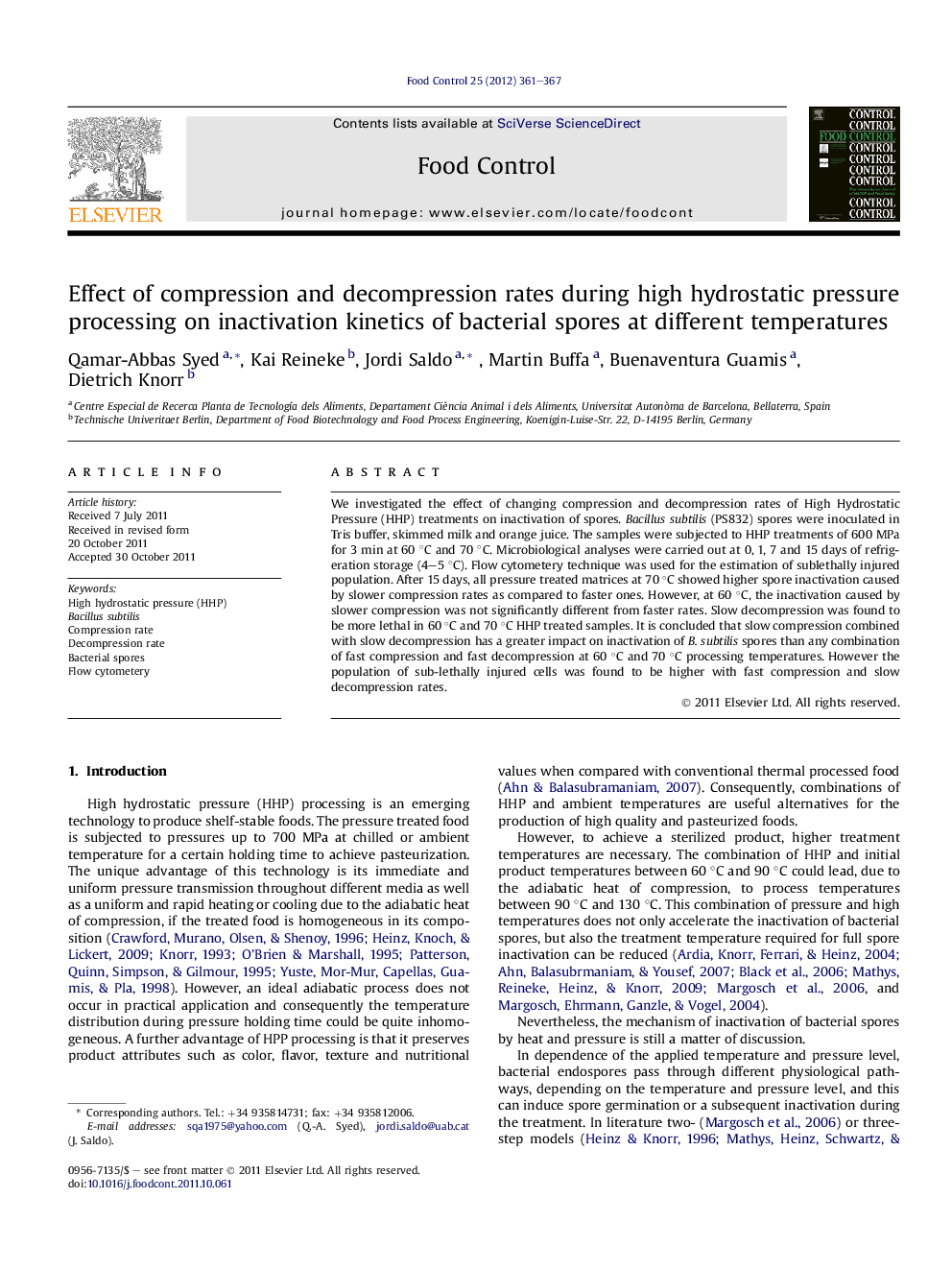| Article ID | Journal | Published Year | Pages | File Type |
|---|---|---|---|---|
| 6394155 | Food Control | 2012 | 7 Pages |
We investigated the effect of changing compression and decompression rates of High Hydrostatic Pressure (HHP) treatments on inactivation of spores. Bacillus subtilis (PS832) spores were inoculated in Tris buffer, skimmed milk and orange juice. The samples were subjected to HHP treatments of 600 MPa for 3 min at 60 °C and 70 °C. Microbiological analyses were carried out at 0, 1, 7 and 15 days of refrigeration storage (4-5 °C). Flow cytometery technique was used for the estimation of sublethally injured population. After 15 days, all pressure treated matrices at 70 °C showed higher spore inactivation caused by slower compression rates as compared to faster ones. However, at 60 °C, the inactivation caused by slower compression was not significantly different from faster rates. Slow decompression was found to be more lethal in 60 °C and 70 °C HHP treated samples. It is concluded that slow compression combined with slow decompression has a greater impact on inactivation of B. subtilis spores than any combination of fast compression and fast decompression at 60 °C and 70 °C processing temperatures. However the population of sub-lethally injured cells was found to be higher with fast compression and slow decompression rates.
⺠Effect of changing compression and decompression rates studied in different matrices. ⺠Rate of compression & decompression does affect spores inactivation process. ⺠At 70 °C, slow compression combined with slow decompression is more lethal for Bacillus spore inactivation. ⺠Fast compression combined with slow decompression resulted in more injured cells.
